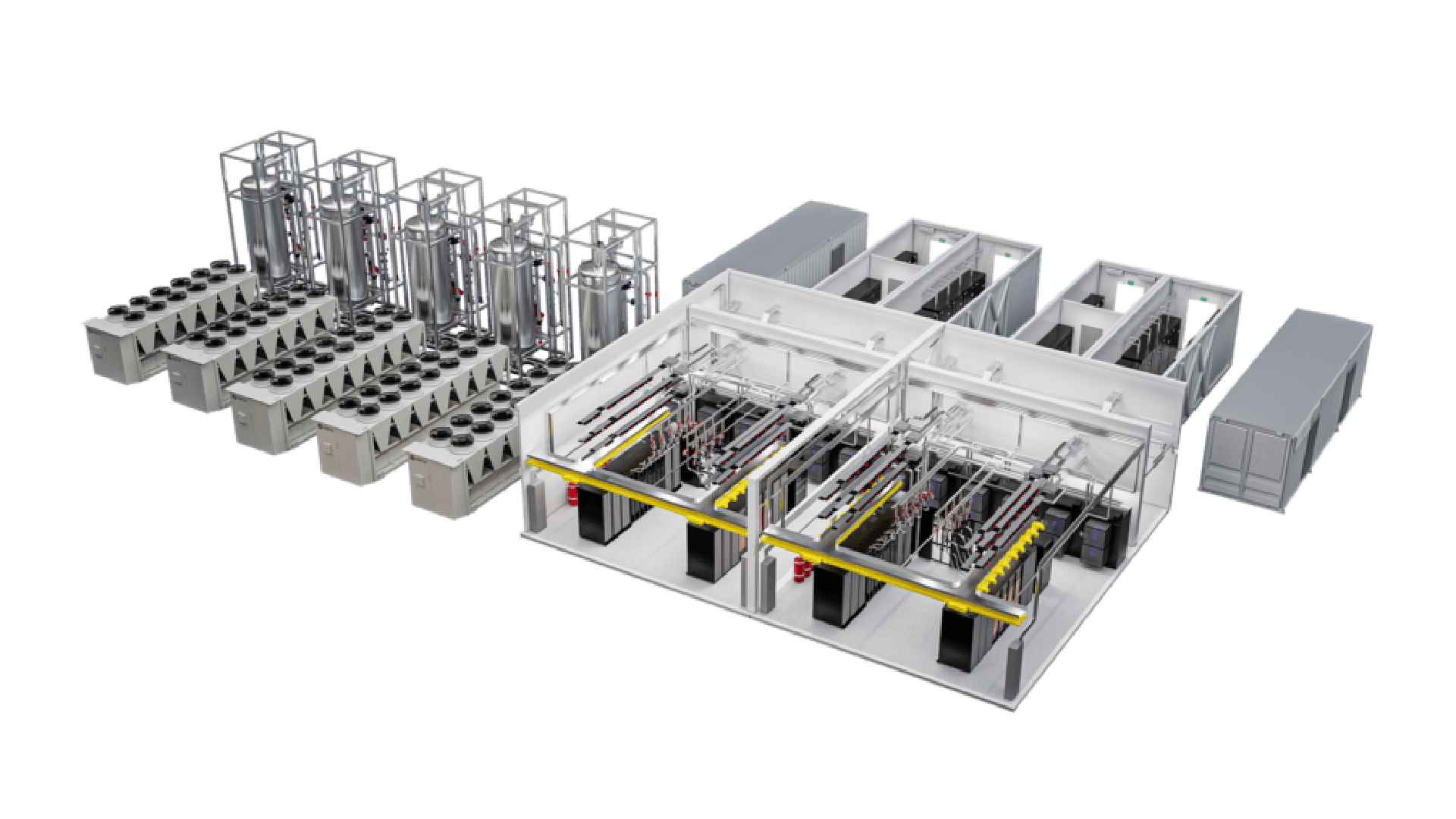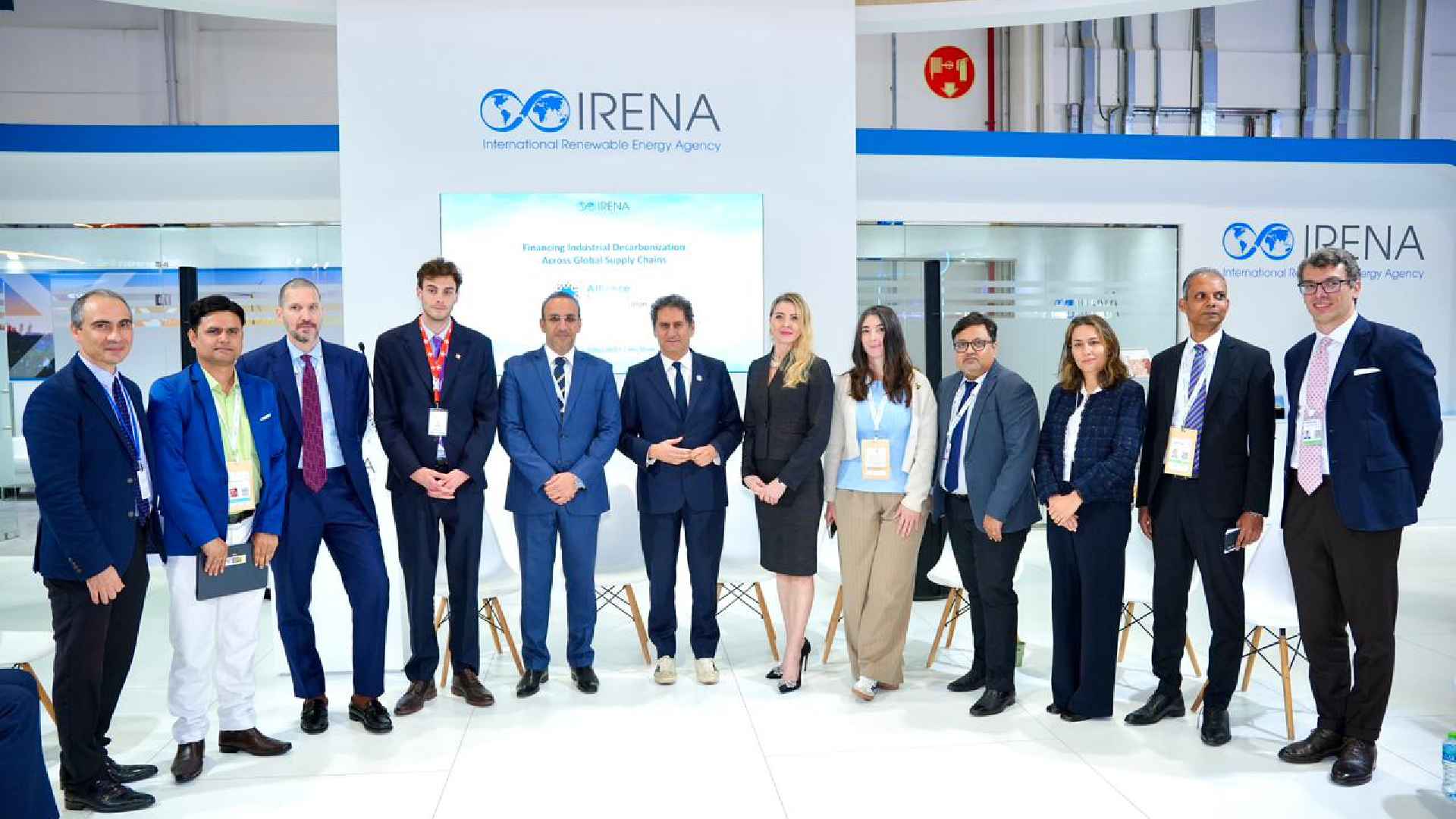Tech News
AI-powered personalized learning: The next frontier for Middle East education

By Isil Berkan, Marketing Director, Middle East, Africa & Turkey at Pearson
Artificial intelligence is no longer a distant promise: it’s already reshaping how we live, work, and learn. In the classroom, AI-powered tools are adapting lessons in real-time to each student’s strengths, gaps, and pace. That means less time marking, and more time for teachers to connect, coach, and inspire.
In the Middle East, governments are actively reforming education to build a digital-ready workforce. AI offers a unique opportunity to close skill gaps, increase engagement, and prepare youth not only for today’s jobs but for those yet to come. With thoughtful implementation and the right safeguards, AI-powered learning is reshaping education at an unprecedented scale and speed.
The current state of AI in Middle Eastern education
Across the region, governments are investing significantly in digital transformation in education. In the UAE, AI learning begins from kindergarten, part of its ambition to become a global leader in AI. The country now ranks third globally for attracting AI talent, according to Stanford’s 2024 AI Index report.
Saudi Arabia’s Vision 2030 includes a bold national strategy for data and AI, aiming to position the Kingdom among the world’s top AI-powered economies. Initiatives like “One Million Saudis in AI” and “Artificial Intelligence Hour” are already equipping hundreds of thousands of students with essential skills. Public-private partnerships are accelerating progress, especially in STEM and bilingual education.
Why AI-powered personalized learning is needed
Many traditional classrooms are constrained by fixed curricula and standardized teaching methods. This can make it difficult to meet the needs of individual students. AI can help close the gap—giving every student tailored support based on how they learn best. It doesn’t replace teachers; it gives them better tools to adapt, support, and engage.
The AI in education market is expected to grow to over $20 billion by 2027. Pearson’s own research found that 76% of teachers spend at least an hour a week planning lessons in their own time. This provided inspiration for innovations like our Smart Lesson Generator, which reduces admin and delivers curriculum-aligned content at the right level, in seconds.
Generative AI can identify at-risk learners early, recommend specific interventions, and dynamically adapt materials for better comprehension and retention. These tools tailor content to each learner’s unique needs by offering personalized explanations, summaries, and practice questions.
How it can be implemented and the benefits
AI needs more than access to devices; it works best when integrated into pedagogy. Tools like Mondly by Pearson let learners practise speaking and listening in realistic, role-based scenarios, powered by speech recognition and adaptive feedback.
This kind of real-time assessment is especially valuable for workforce preparation, where language skills, particularly English, directly influence employability. In Saudi Arabia, Pearson’s research shows a 40% gap in English skills across industries, something AI can help address at scale.
Challenges and considerations
In a world where 60% of educators are already implementing AI in the classroom, concerns around data privacy, digital literacy, and equitable access cannot be ignored.
Many schools still lack the infrastructure or teacher training needed to roll out AI programs effectively, with 61% of teachers indicating they would feel more confident using AI if they were properly trained. However, these challenges present opportunities for regional collaboration and innovation. Ethical frameworks, clear data policies, and inclusive curriculum design can mitigate risks.
AI-powered tools that are built on proprietary standards like the Global Scale of English can ensure precision and alignment with real-world learning outcomes. Rather than replacing educators, AI should be positioned as a tool that empowers them, providing real-time assistance during lessons, answering questions, and offering extra resources.
Government initiatives and national strategies
The UAE’s AI Strategy 2031 and Saudi Arabia’s Vision 2030 show a clear commitment to integrating AI across all levels of education. Programs like the King Abdullah Scholarship Program (KASP) are sending students abroad to study advanced technologies, while EdTech partnerships are multiplying across the region.
By 2030, AI is expected to contribute over $96 billion to the UAE’s economy and $135 billion to Saudi Arabia’s. To realise this, education must lead the way.
The road ahead
To make the most of AI in education, we need more than devices and dashboards. We need collaboration.
Educators need hands-on training. Policymakers need to create regulations that promote safe, equitable use of AI. And technology providers must build tools with—not just for—teachers and learners. That includes embedding AI into curricula and teaching the next generation how to use it responsibly.
The Middle East has momentum on its side. If governments, educators, and tech companies act together, the region can set a global example, building an education system that’s more personalised, more agile, and fit for the future.
Tech News
VERTIV INTRODUCES NEW MODULAR LIQUID COOLING INFRASTRUCTURE SOLUTION TO SUPPORT HIGH-DENSITY COMPUTE REQUIREMENTS IN NORTH AMERICA AND EMEA

Vertiv (NYSE: VRT), a global leader in critical digital infrastructure, today announced new configurations of the Vertiv™ MegaMod™ HDX, a prefabricated power and liquid cooling infrastructure solution engineered for high-density computing environments, including artificial intelligence (AI) and high-performance computing (HPC) deployments. The new configurations give operators flexibility to support rapidly increasing power and cooling requirements while optimizing space and deployment speed. The models are available globally.
Vertiv MegaMod HDX integrates direct-to-chip liquid cooling with air-cooled architectures to meet the intense thermal demands of AI workloads, supporting pod-style AI environments and advanced GPU clusters. The new compact solution has a standard module height and a maximum of 13 racks and power capacity up to 1.25 MW; the combo solution has an extended-height design with a maximum of 144 racks, supporting power capacities up to 10 MW. Both can support rack densities from 50 kW up to more than 100 kW per rack. The hybrid cooling architectures integrate direct-to-chip liquid cooling with air cooling for efficient, high-density thermal management, while the prefabricated modular designs enable accelerated deployment and allow customers to scale their data centers as demand grows.
“Today’s AI workloads demand cooling solutions that go beyond traditional approaches. With the Vertiv MegaMod HDX available in both compact and combo solution configurations, organizations can match their facility requirements while supporting high-density, liquid-cooled environments at scale. Our designs deliver what data centers need most—reliable performance, operational efficiency, and the ability to scale their AI infrastructure with confidence,” said Viktor Petik, senior vice president, infrastructure solutions at Vertiv.
The Vertiv MegaMod HDX models feature innovative hybrid cooling architecture, combining direct-to-chip liquid cooling with adaptable air systems in a fully integrated, prefabricated pod. The solutions feature distributed redundant power architecture enabling continuous operation even if one module goes offline. Additionally, the buffer-tank thermal backup system allows GPU clusters to maintain stable operations during maintenance or load transitions. This factory-integrated design enables repeatable precision in deployment while providing cost certainty for planning and scaling AI infrastructure.
This prefabricated design, combined with factory integrated and fully tested components and Vertiv’s global service network, provide dependable end-to-end support.
Vertiv’s extensive portfolio of power, thermal, and IT management solutions supports a wide range of data center architectures, enabling customers to meet rising density demands with scalable, high-performance infrastructure. Both configurations draw on this broader portfolio, including the Vertiv™ Liebert® APM2 uninterruptible power supply (UPS), Vertiv™ CoolChip CDU cooling distribution unit, Vertiv™ PowerBar busway system, and Vertiv™ Unify infrastructure monitoring.
Vertiv also offers IT rack infrastructure designed to seamlessly accommodate and support IT systems, including Vertiv™ racks and Vertiv™ OCP- compliant racks, Vertiv™ CoolLoop RDHx rear door heat exchanger, Vertiv™ CoolChip in-rack CDU, Vertiv™ rack power distribution units, Vertiv™ PowerDirect in-rack DC power system, and Vertiv™ CoolChip Fluid Network Rack Manifolds.
Tech News
HOLCIM UAE JOINS IRENA’S ALLIANCE FOR INDUSTRY DECARBONIZATION (AFID)

Holcim has joined the Alliance for Industry Decarbonization (AFID) under the International Renewable Energy Agency (IRENA), reinforcing its commitment to play an active role in shaping the future of low-carbon construction in the UAE and beyond.
Formalized during Abu Dhabi Sustainability Week in January 2026, the membership marks a strategic milestone in Holcim UAE’s evolution from operational decarbonization to sector-wide leadership. Through AFID, Holcim is partnering with a government-led alliance, bringing its established expertise and operational leadership in sustainable building materials and solutions to policy and industry dialogues shaping the future of industrial activity in the UAE.
AFID brings together governments, international organizations, and leading industrial players to accelerate the implementation of technologies and practices across hard-to-abate sectors. Holcim’s participation reflects a deliberate focus on collaboration with policymakers and industry peers, ensuring that regulatory frameworks, investment signals, and technology pathways are informed by real-world industrial experience.
“Industry decarbonization requires practical action at scale, supported by the right policy direction. Joining AFID allows Holcim to engage at that intersection, bringing perspective shaped by practical experience to conversations that matter for the UAE’s low-carbon future,” said Ali Said, CEO of Holcim UAE and Oman.
AFID’s work spans priority areas such as Renewables, Carbon Capture, Utilization, and Storage, Circularity, Green Hydrogen, Human Capital, and Climate-aligned Finance. These focus areas closely align with Holcim’s long-term strategy where sustainability underpins how the business operates, invests, and works with partners across its value chain.
By joining AFID, Holcim reinforces its positioning as a partner focused on contributing to the broader systems and collaborations that will define the future of sustainable construction in the United Arab Emirates and the wider region.
Tech News
BELKIN ELEVATES EVERYDAY DEVICE PROTECTION WITH A NEW LINEUP OF SCREEN PROTECTORS AND A WEAR & TEAR PROGRAM

a leading consumer electronics brand for over 40 years, today announces a new class of screen protection solutions, a strategic partnership, and an all-new wear-and-tear program; advancing its commitment to keeping devices protected and consumers confident. The launch includes seven new screen protectors, a customisation partnership with ScreenSkinz, and a screen protection replacement program designed to give users lasting peace of mind and ensure the products they love stay safe, secure, and in the best shape.
Meet the ScreenForce Titan Lineup: The Ultimate in Full-Screen Protection
Titan SmartShield
Titan SmartShield serves as the premium rigid protector in the lineup, delivering aerospace-grade impact resistance and up to 18x the strength of traditional glass*. Engineered with a 9H surface hardness and rated for up to 6.5 ft / 2 m of drop protection**, Titan SmartShield offers exceptional durability without compromising clarity. An advanced anti-reflective coating preserves vivid colour and brightness in any lighting environment, while the anti-dust adhesive helps push away particles during installation for a flawless finish. The glass is manufactured with up to 60% recycled materials and is fully compatible with fingerprint sensors. A privacy version will also be available. Titan SmartShield launches in February 2026.
Titan LiquidGuard
Titan LiquidGuard is an innovative liquid screen protector that uses Nano-Titan Technology+, a proprietary fusion of a water-based German SiO₂, Graphene, and Nano-Titan Technology, to reinforce device displays at the molecular level, delivering 9H scratch protection without adding bulk. The oleophobic coating creates a smooth, smudge-resistant surface that maintains the device’s original look and touch sensitivity. Applied in minutes and backed by up to a $300 screen repair guarantee, Titan LiquidGuard offers a discreet, no-fuss approach to everyday screen protection. Titan LiquidGuard launches in February 2026.
Titan EcoGuard
Titan EcoGuard is made using advanced polymer materials infused with Nano-Titan Technology, a proprietary structure featuring high-density nano-reinforcement that delivers up to 5.9 ft / 1.8 m of drop protection. These materials are collected from post-consumer sources and certified by the Global Recycled Standard (GRS). Built to flex under pressure instead of cracking, Titan EcoGuard offers industry-leading 7H rated scratch and impact resistance with ultra-thin construction, while an anti-reflective coating preserves the device’s natural look and precision touch response. The flexible, shock-dispersing surface is ideal for curved screens and high-use devices.
The Titan EcoGuard Collection Includes:
Titan EcoGuard Anti-Reflective Screen Protector
- – The foundational model is designed for full-screen, anti-reflective protection while preserving vibrant colour and crystal-clear clarity – even under direct sunlight. It is made with 97% pre-consumer recycled materials. Includes anti-dust installation adhesive and a tray-based alignment system made with recycled plastics.
- Titan EcoGuard Privacy Filter Screen Protector
- – Incorporates vertical-view privacy filtration to protect sensitive information from side-angle viewing. Ideal for use in public settings, during travel, or for confidential work.
- Titan EcoGuard Red Light Screen Protector
- – Utilises a light-conversion layer that converts harmful blue light into soothing, skin- and eye-friendly red light, supporting everyday wellness for users sensitive to blue light or those who frequently use devices at night. This invisible, colourless protection delivers 2x the red-light exposure vs. industry standards**** while maintaining a natural viewing experience.
All Titan EcoGuard screen protectors arrive in 100% recyclable packaging using FSC-certified paper. Each kit includes a microfiber cloth, dust removal sheet, and eco-friendly alignment tray for precise, frustration-free application. Titan EcoGuard is compatible with ultrasonic fingerprint sensors and engineered for next-generation device displays.
If It’s Broken, Fix It. Quickly, Easily, and Hassle-Free.
Doubling down on its commitment to delivering the highest quality product experience, Belkin introduces a new Wear and Tear replacement program in addition to its established product warranty. Launching this month, consumers can easily replace screen protection products compromised by everyday use and/or life’s inevitable accidents, directly on Belkin.com. The new process is straightforward, transparent, and most importantly, hassle-free.
Products will continue to be replaced at no cost, with a flat shipping and handling fee applied.
The program will be available in Australia, Canada, Germany, the UK and the US, for now, with plans to expand to other countries in the future.
Custom Screen Protection with Screen Skinz
Belkin is partnering with Screen Skinz to bring a new level of personalisation to screen protection. Coming soon to Belkin.com, customers will have the ability to create a custom design or choose from a curated collection of pre-made options, which will be etched directly onto their screen protector. The result is protection that is uniquely customised. Utilising Screen Skinz’ patented etching technology, designs are visible only when the phone display is off. When the screen is on, the design disappears to ensure a smooth, uninterrupted viewing experience while delivering trusted durability and peace of mind.
-

 Tech News2 years ago
Tech News2 years agoDenodo Bolsters Executive Team by Hiring Christophe Culine as its Chief Revenue Officer
-

 VAR9 months ago
VAR9 months agoMicrosoft Launches New Surface Copilot+ PCs for Business
-

 Tech Interviews2 years ago
Tech Interviews2 years agoNavigating the Cybersecurity Landscape in Hybrid Work Environments
-

 Tech News6 months ago
Tech News6 months agoNothing Launches flagship Nothing Phone (3) and Headphone (1) in theme with the Iconic Museum of the Future in Dubai
-
News10 years ago
SENDQUICK (TALARIAX) INTRODUCES SQOOPE – THE BREAKTHROUGH IN MOBILE MESSAGING
-

 Tech News2 years ago
Tech News2 years agoBrighton College Abu Dhabi and Brighton College Al Ain Donate 954 IT Devices in Support of ‘Donate Your Own Device’ Campaign
-

 VAR1 year ago
VAR1 year agoSamsung Galaxy Z Fold6 vs Google Pixel 9 Pro Fold: Clash Of The Folding Phenoms
-

 Editorial1 year ago
Editorial1 year agoCelebrating UAE National Day: A Legacy of Leadership and Technological Innovation























